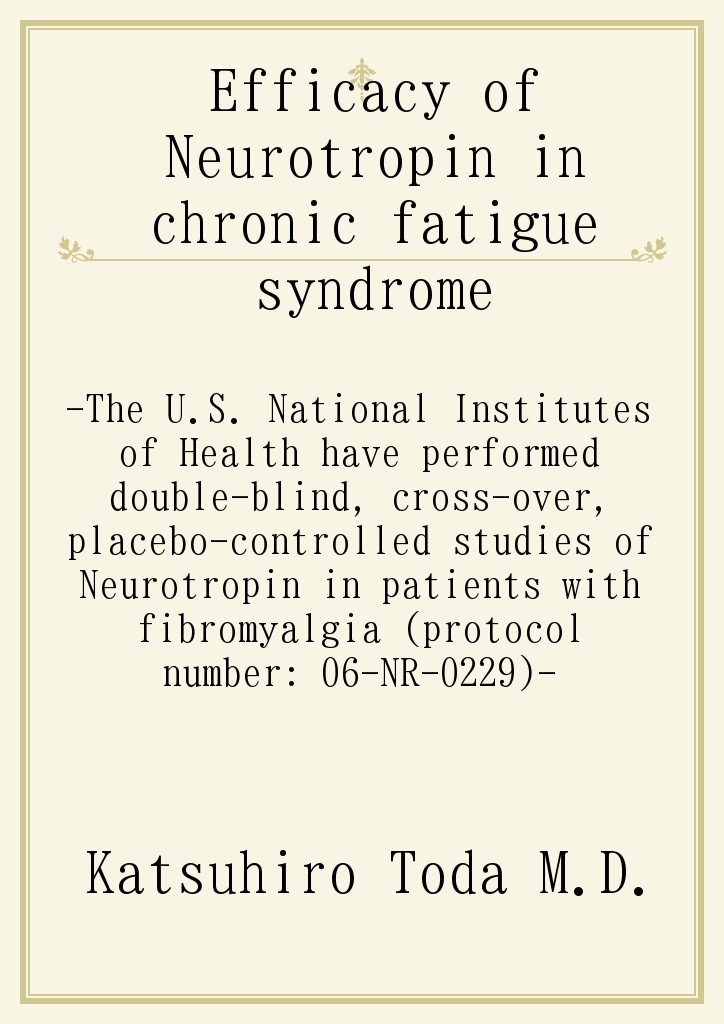The efficacy of Neurotropin (NT) for chronic fatigue syndrome (CFS) is presented. Eleven CFS patients received NT as 4-8 tablets per day (average: 6.6 tablets). Subjective fatigue at the initial visit was considered 100, and subjective fatigue after treatment was an index of therapeutic efficacy. Patients whose subjective fatigue decreased to 30% or less with NT alone, or NT and other medicine(s), and whose subjective fatigue did not recur after discontinuation of treatment were 2 and 1, respectively. Patients whose subjective fatigue decreased to 30% or less with NT alone, or NT and other medicine(s), and whose medication was continued were 2 and 1, respectively. Patients whose subjective fatigue decreased to 90% or less but did not decrease to 30% or less with NT alone, or NT and other medicine(s) were 1 and 1, respectively. One patient discontinued treatment because of adverse effects (epigastric distress) of NT. Two patients discontinued treatment because of adverse effects (drug-induced liver injury) during administration of NT and other medicine(s).
In Japan, NT is widely used for chronic pain, such as low back pain, neck-shoulder-arm syndrome, osteoarthritis, subacute myelo-optico-neuropathy, postherpetic neuralgia, and complex regional pain syndrome. Analgesic effects of NT are thought to be the activation of a descending pain inhibitory system; however, it cannot account for the improvement of fatigue. Viral infection theory is a popular hypothesis in the etiology of CFS. NT may activate antivirus action.
This book is free of charge. If you click “この本を開く“, you can download full text. Full text is in http://p.booklog.jp/book/68901/read.
